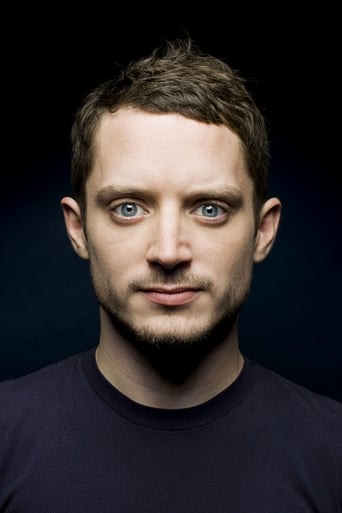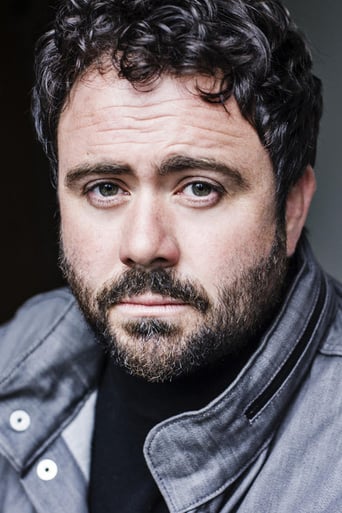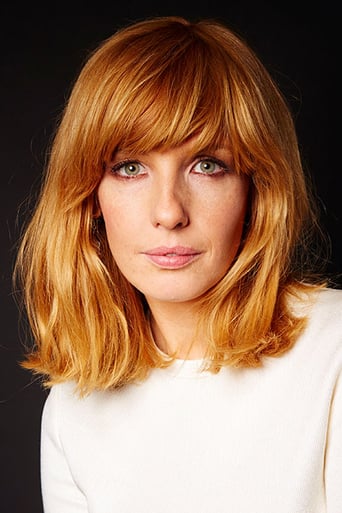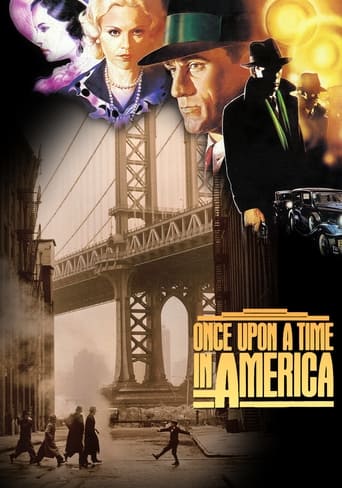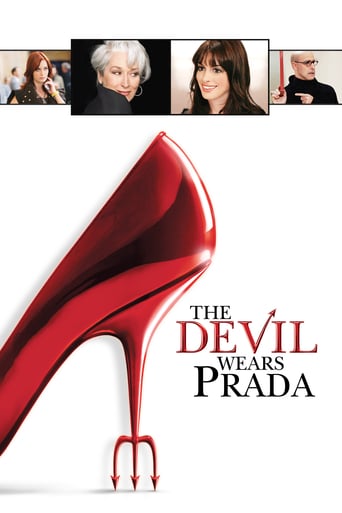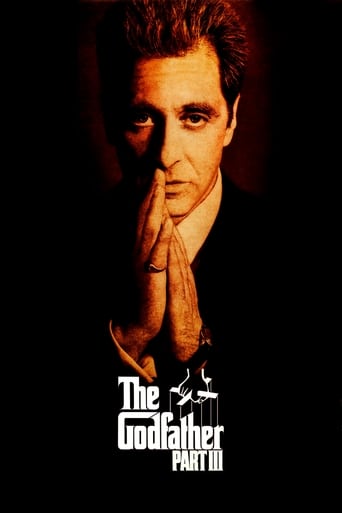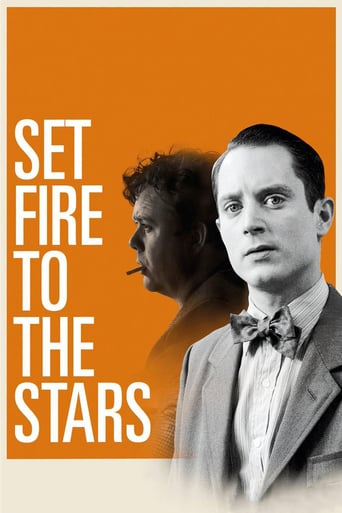

Set Fire to the Stars (2014)
An aspiring poet in 1950s New York has his ordered world shaken when he embarks on a week-long retreat to save his hell raising hero, Dylan Thomas.
Watch Trailer
Cast
Similar titles
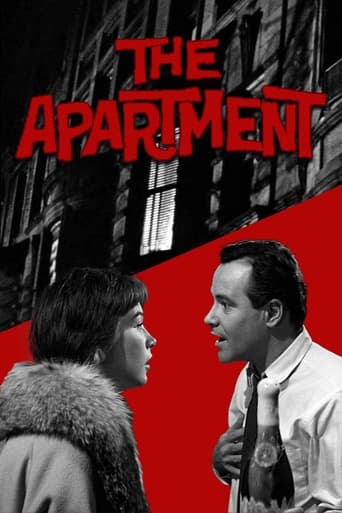

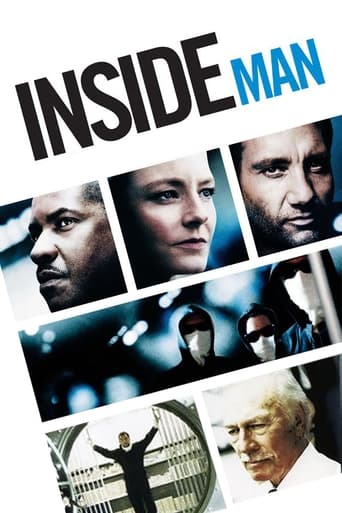
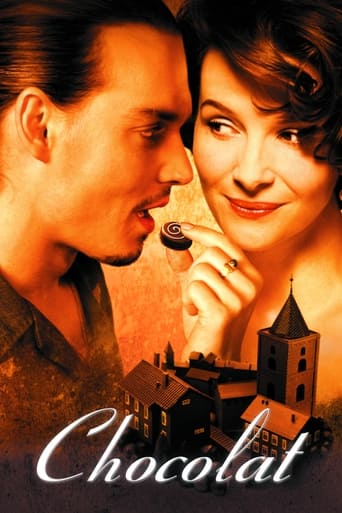
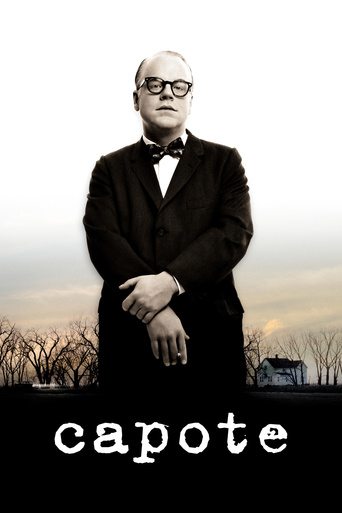

Reviews
If you don't like this, we can't be friends.
Excellent but underrated film
There are moments in this movie where the great movie it could've been peek out... They're fleeting, here, but they're worth savoring, and they happen often enough to make it worth your while.
Watching it is like watching the spectacle of a class clown at their best: you laugh at their jokes, instigate their defiance, and "ooooh" when they get in trouble.
Though not really my thing at all, the film was well structured.Set Fire to the Stars tells the story of Dylan Thomas during his time with poet John Brinnin as he helped him in his spoken word tour.Set Fire to the Stars attempts to be as intense as the artist that it's based on and portray a life that's both wild and sad. The type of story we'd expected about a 1950s poet I guess.It can be amusing. Most appealing for artist who either think there Dylan Thomas or feel like John taking care of Dylan.It's a very cool title, and it has cool art direction somewhere between fact and fiction that glamorizes the world of Dylan Thomas lives in, though Dylan is not that glamorous.Very cool cinematography as well. the Black and white really sets the mood. Also loved how the music blended into it. The technical film aspects put you in the illusion that the movie really was made in 1952.One really great highlight was when the actors recited the words of the writer's they play.A pure motion painting that really captures the time period it's about.
At times my poetic prowess reaches as far as "One Fish, Two Fish, Red Fish, Blue Fish." Most prose filled literature bounce over my head, but I'm not totally blind to the verse language.There are a number of movies that have come along to awaken my vernacular intellect. Adaptations of Shakespearean works such as Hamlet, Much Ado About Nothing, Richard III and Othello. Modern films like The Remains of the Day, Six Degrees of Separation, Agnes of God, Inglourious Basterds, even the romantic comedy Roxanne have dialog that's swept from a Broadway stage dripping with idyllic narratives. I can now add Set Fire to the Stars on this list.My first impression of the semi-autobiographical film of Welsh poet Dylan Thomas' first visit to America by the hands of John Malcolm Brinnin took me to a place where I thought I should be marveling at the actors and sets in a stage play. The lines that leap from the screenplay makes me grateful to be a fan of films such as this. Every now and then one comes along that utilizes speech in a way that makes it masterful.My second impression instantly made me revel at the glossy black and white cinematography. It's punchier, brighter and crisper than any monochrome 1950s movie I've seen. I can't get that image of New York City's skyline with falling snowflakes out of my head. It reminded me a snow-globe in which the city glowed and shimmered like the energetic place it is.Other than the stark imagery, the performances are just as captivating. It's both difficult and entrancing to watch Celyn Jones bring the poet to life. To see someone recklessly destroy himself as well as those around him should make one appalled. When Dylan is stripped from New York City and taken to John's quiet country home, it's sort of like caging a wild lion. In the DVD outtake he says to John, "It's like a Presbyterian wake." Dylan does get loose and has a unique way of alluring people to him. He also has a knack of alienating them. It's not due to his celebrity, but his inclination with words and brash demeanor. Celyn as Thomas is a being who is poetry in motion. He's both devil and angel, moral and corrupt, bitter and sweet, tears and laughter.Elijah Wood is suited well in this period piece with the look of a classic actor from the era in which the film is set. As opposed to Dylan, there's not much known about John Brinnin. However, the way Elijah portrays the Harvard scholar, he makes us believe the literary critic to be reserved but holds a powerful status. We struggle with John every step of the way as he wants to be a colleague and advocate but instead is diminished to a caretaker and scapegoat. Despite all this John is still an admirer. In one scene he watches Thomas recite his poem "And Death Shall Have No Dominion" to the Yale big wigs. Dylan fumbles at first then settles in. The camera closes in on John and you can feel the admiration in his eyes while the others show little sign of validation. Elijah delivers in this film just as eloquently as Celyn.Together, Elijah and Celyn poured themselves into these men and brought a precarious relationship to the screen. One is loose while the other restrained. John pushed Dylan as much as Dylan pushed John. The two were like oil and vinegar but when mixed properly, they delivered a savory retort. There was a bit of a montage of them working intently on their upcoming engagement at Yale. I would have loved to witness more of that collaboration and listened how they discussed, agreed and bickered. It was a quiet battle between them and when all seemed good, one did something to destroyed what they had working.The supporting cast is great composed of Shirley and Stanley, a married couple who live near Brinnin's lake home, coming in to have a wild evening of drinking and story-telling. Rosie, a spunky little waitress in a diner and Jack, John's adversary from Yale who wants to see John fail knowing the attitude of Thomas. One of the stronger scenes is the apparition of Dylan's wife Caitlin. Throughout the movie there is a letter from her that Dylan refuses to open. It scares him to do so and that bothers John deeply.When Caitlin appears to Dylan, she speaks and taunts him with her poetry on why he left her and their children and why he had to. This exchange arouses Dylan to behave in the manner John has been wanting him to act since they met. John is now upset by what Dylan's wife may have written and says, "What did that woman say? What did she say that awoke you from your dream? I need to know. What is it she can scribble down in her violent, cheap-hand that eclipses my entire being?" After they struggle about, Dylan brings the movie to its purpose. "Don't open a book." he says. "Open a window," explaining to John life is in right front of him.It's hard to believe they shot this film in 18 days. One would think it took months to complete if not for the dialog alone. Not knowing Thomas' work, it doesn't bother me that his poems are not recited in their entirety. I'm glad in fact. As I said, most poems need to rhyme for me to understand them, but just enough of them are spoken to help the screenplay along. But if you're aching to hear them, they are recited by Celyn in the DVD extras.If this were to be in the running at the Oscars, I could see Set Fire to the Stars getting a nod for cinematography and screenplay. Celyn Jones and writer/director Andy Goddard penned a beautifully scripted and photographed piece of cinema.
The tribulations of an uptight academic as he chaperons a wild artist on a poetry tour of stuffy American universities.This is beautifully made, especially the rhythm of the scenes in the first half. And it looks good, although there was something off about the Connecticut countryside - thought it might be Canada, never guessed it was Wales.The leads play well together, but the humour didn't hit the mark for me. I liked the actress who told the ghost story. What elevated this was when Caitlin came stalking through the woods like a witch and wrapped herself around Dylan - powerful performance. It came possibly too late, but it did spark the magic. Pity they didn't fit in another couple of scenes with that character, instead of waving the letter around like a threat. And I suppose they could have given a visual on Dylan's lyrics - although that might have turned out too wacky. The relay recitation of the poem was great.Music perfect.
Everyone in the cinema was quite struck by the profound and beautiful movie that is "Set Fire To The Stars". You could see it in the faces of the audience, as each person figured out which message had the most resonance.This movie is much more than another biopic of an artist on the fringe of society. And for most audiences, it will be much more meaningful than Dylan Thomas's poetry. It took me a while to process the resonance for me in this movie. I had to filter the welcome enormity of Elijah Wood's screen presence and Celyn Jones' powerful persona. But they gave me enough gentle nudges and artistic clues under Andy Goddard's direction to lead me to the following conclusion: the purpose of this film is to unravel some of the mysteries of male friendship, and to lift the veil on hero worship (which Elijah must experience on the other side, in his real life) and, of course, where Dylan helped, it was on the transformative power of words. With all this colour going on, the superb aesthetic of the black and white film compliments the mood nicely. Tantalisingly the film gives no pithy answers, or sound-bitten sentimentalism. Instead I need to look inside myself, and perhaps within the poetry of Dylan Thomas, to find some of those answers. Or maybe I just need to watch it again.This review also needs to pay justice to the sheer entertainment value that is throughout the movie. I loved it - from start to finish. Elijah's performance is incredible. Celyn's character is jaw- droppingly intriguing (and believable), and the music from Gruff Rhys (of Super Furry Animals fame) is beautiful at all times and crosses a range of genres and styles. Everything is in balance, except Dylan's psyche - and that's what makes it fun! This is a monumental achievement, where intellectualism and pure fun entertainment ride side by side. Perhaps it is the start of a new genre - where intellectual movies have taken their heads out of the clouds and are doing it with a smile. I'm sure that's how Dylan would have wanted it to be.
